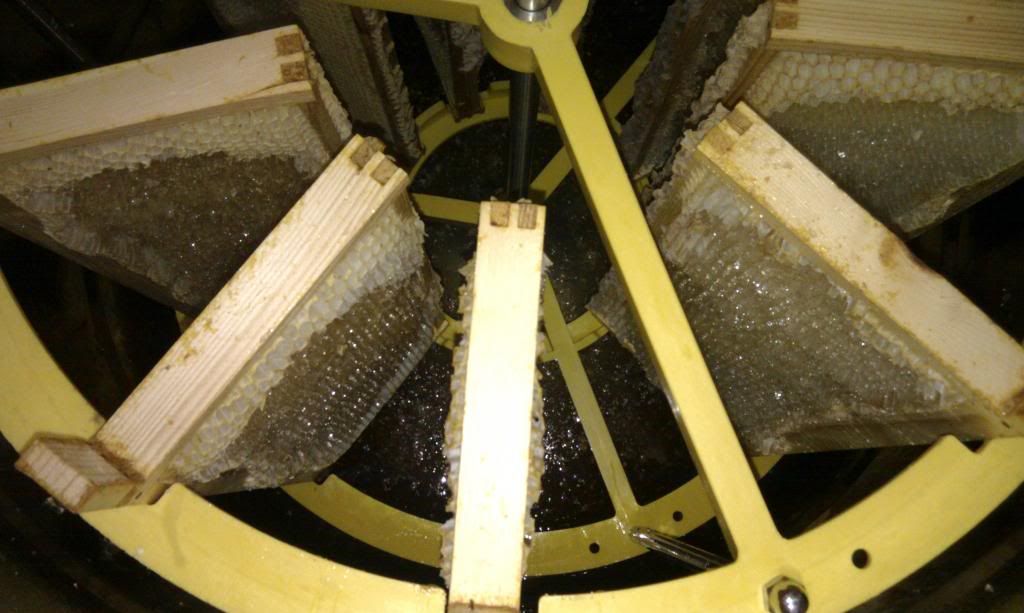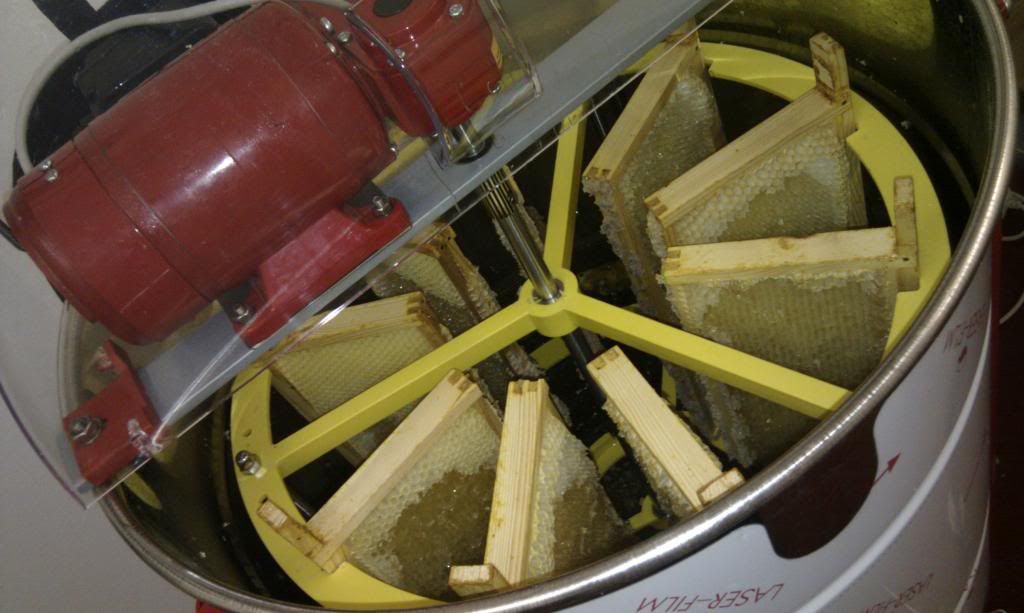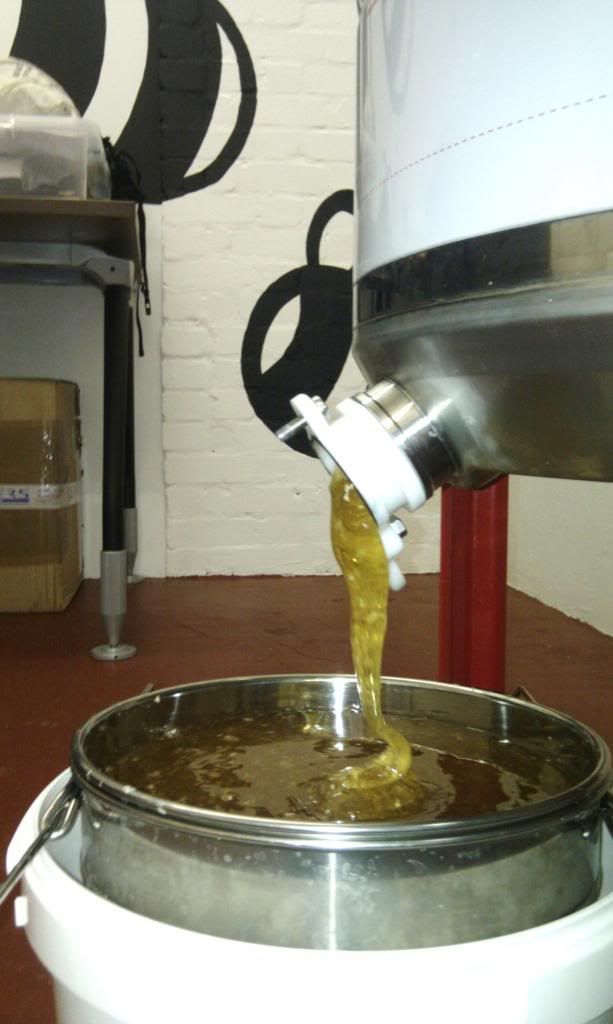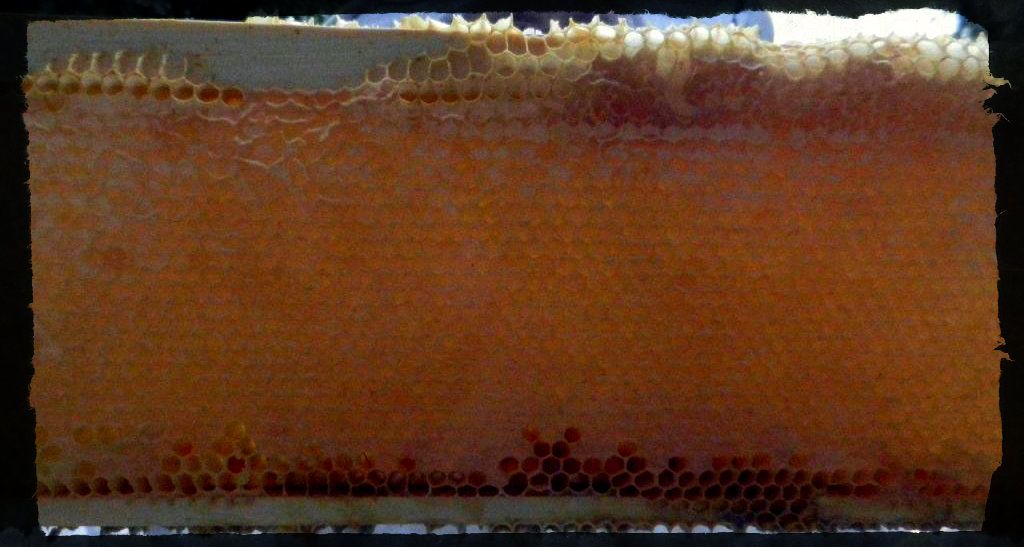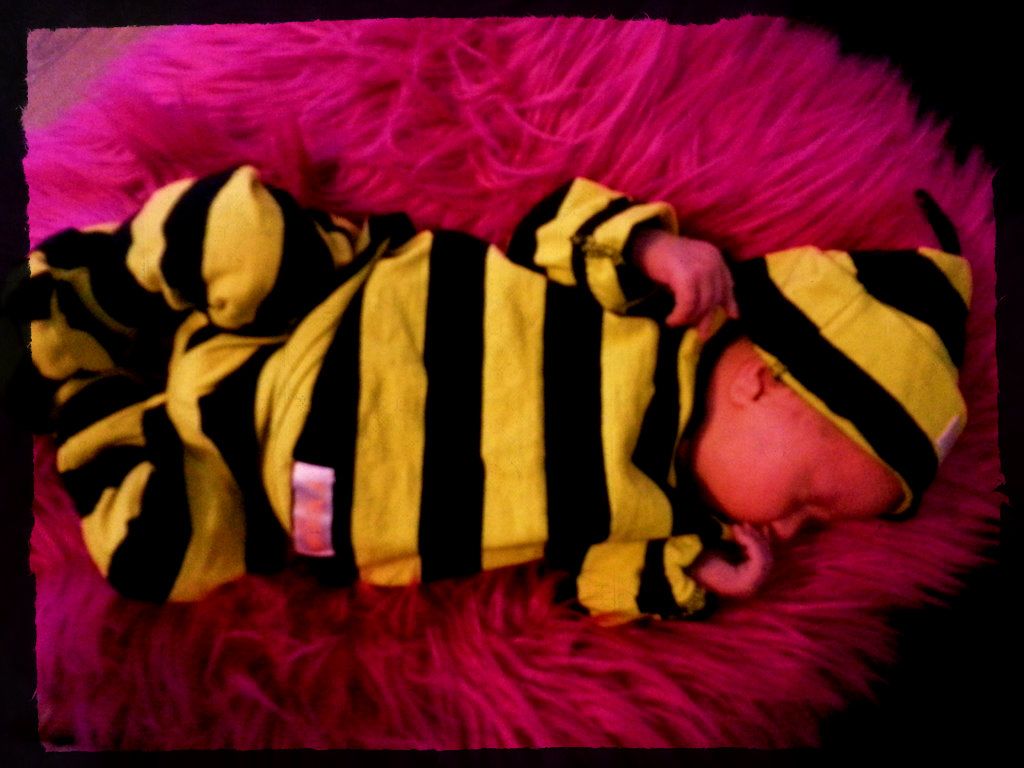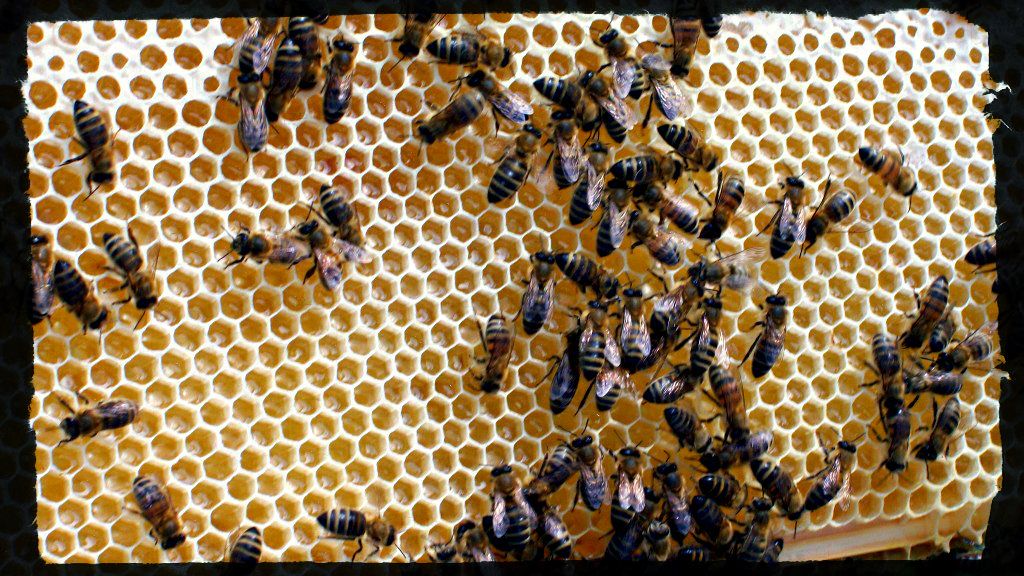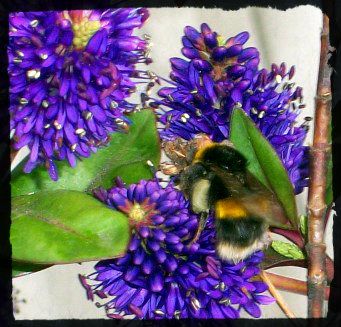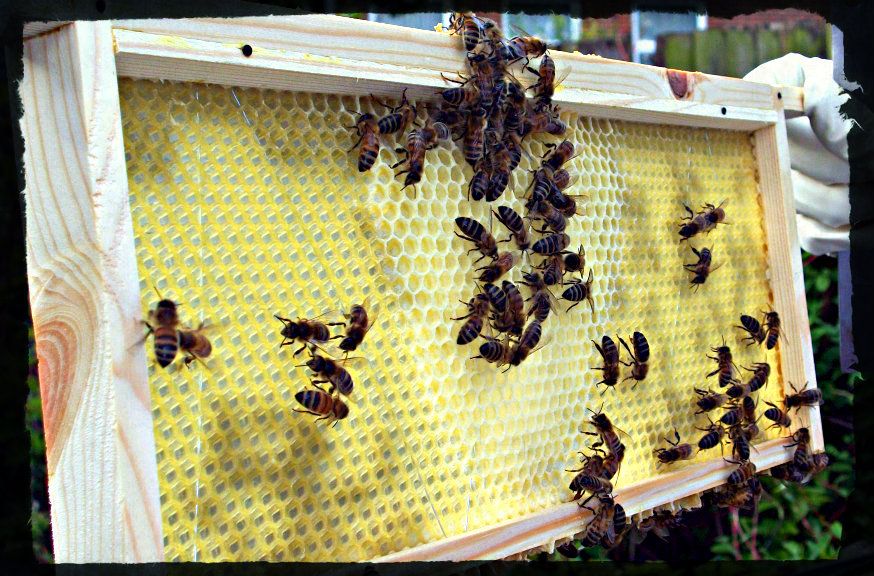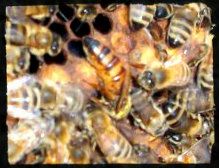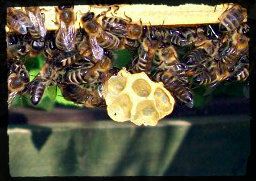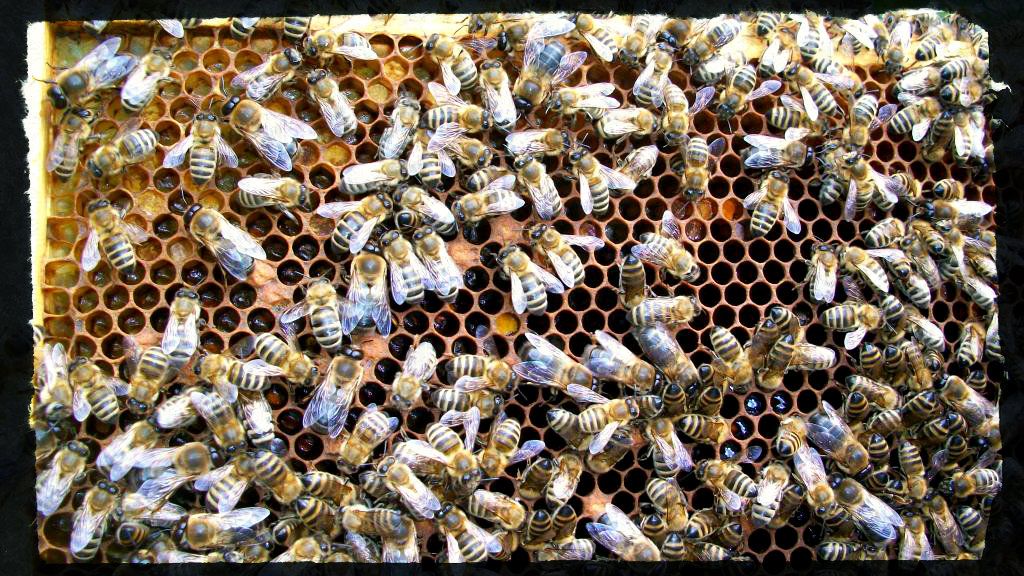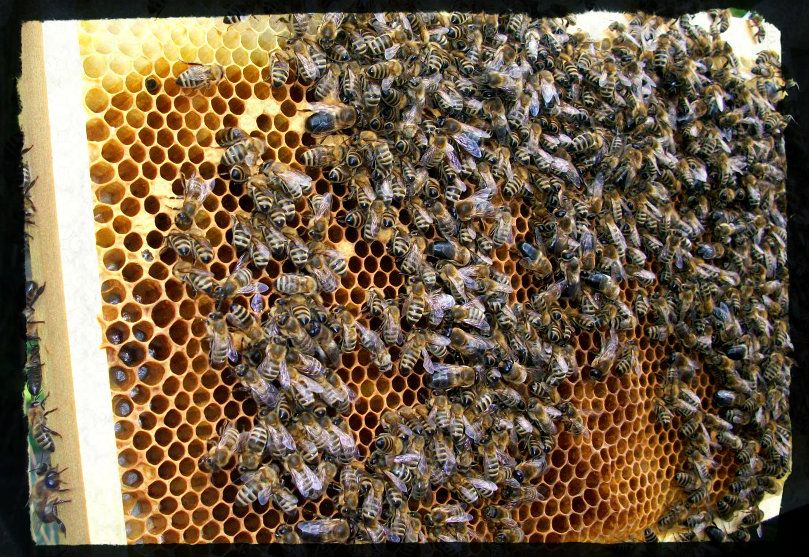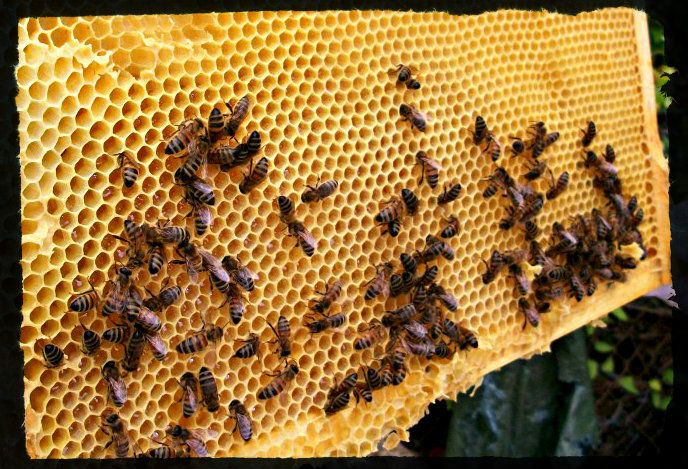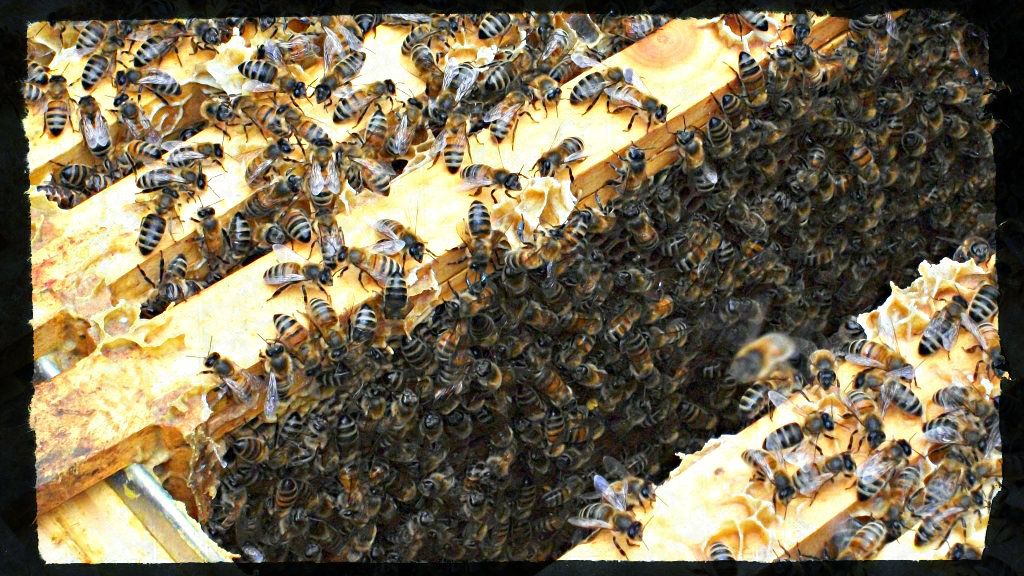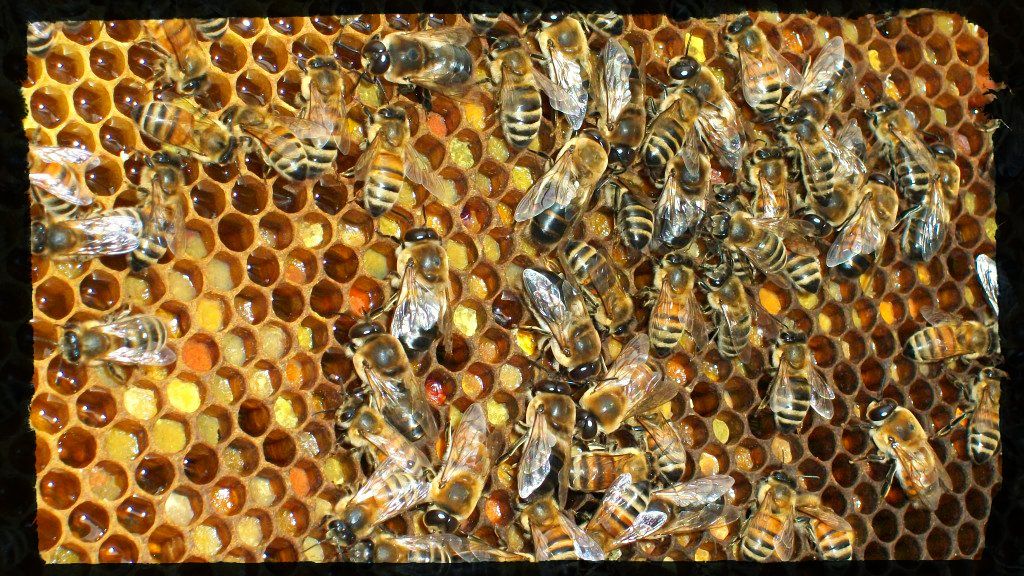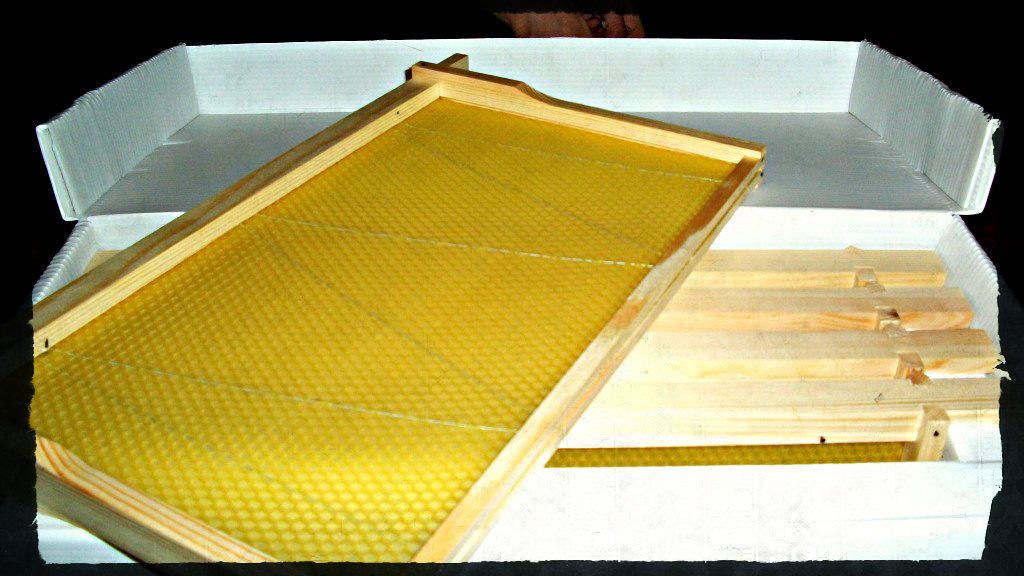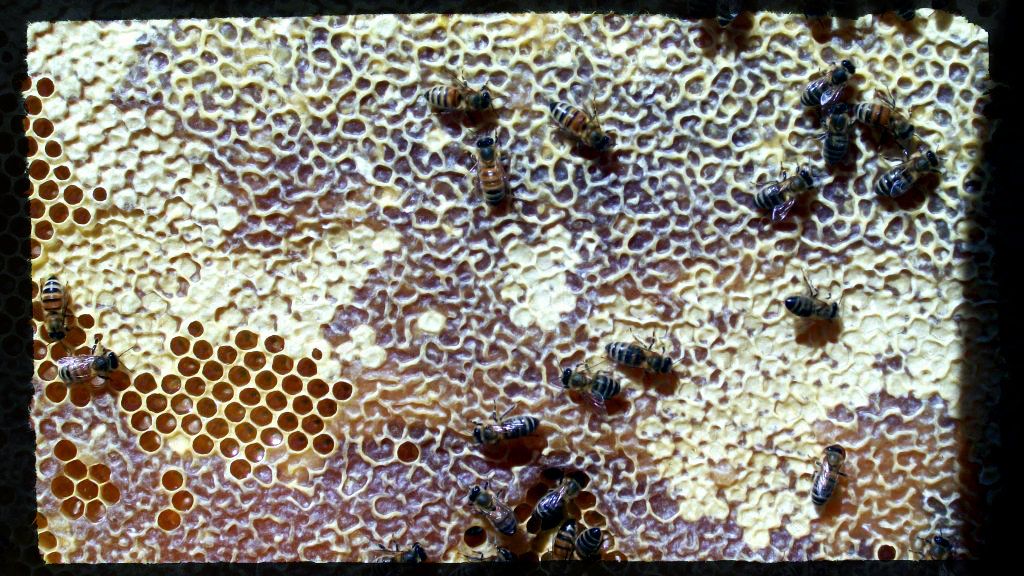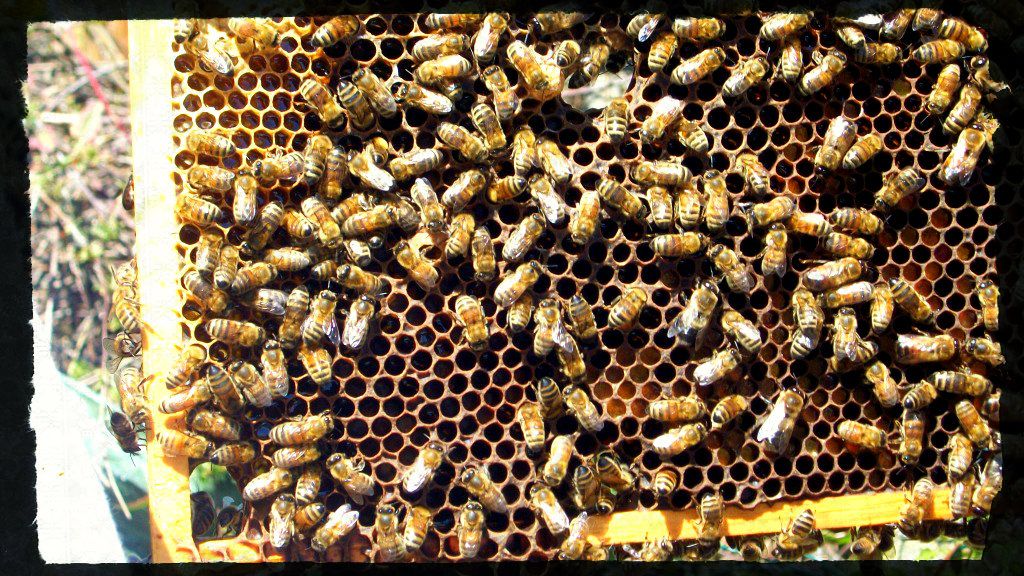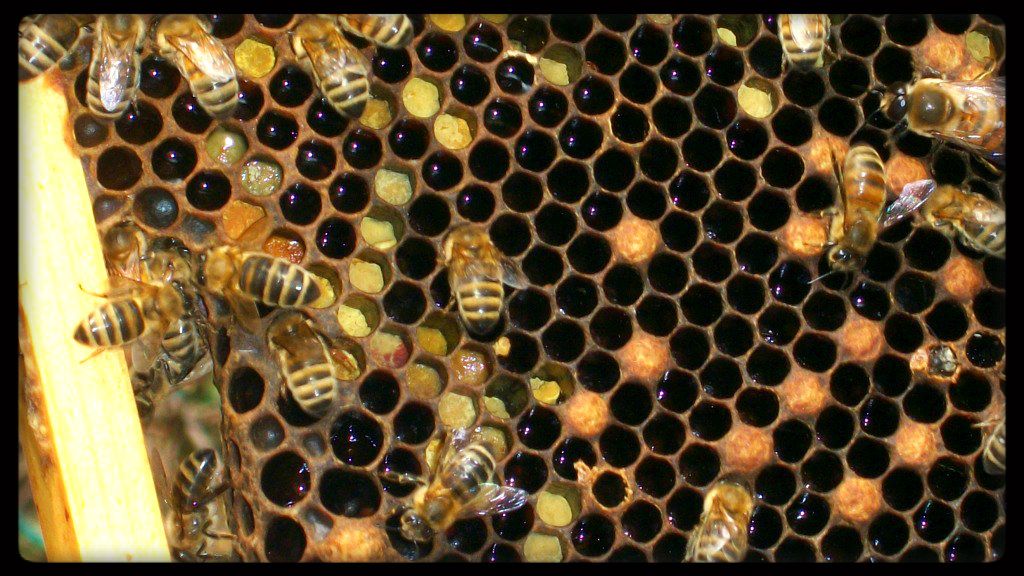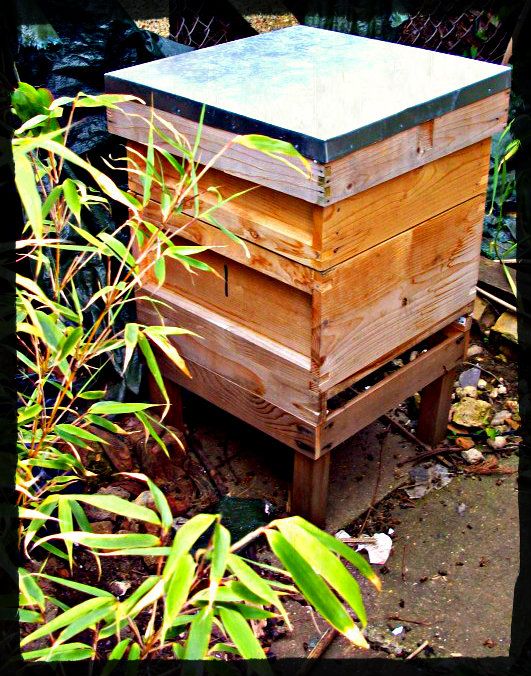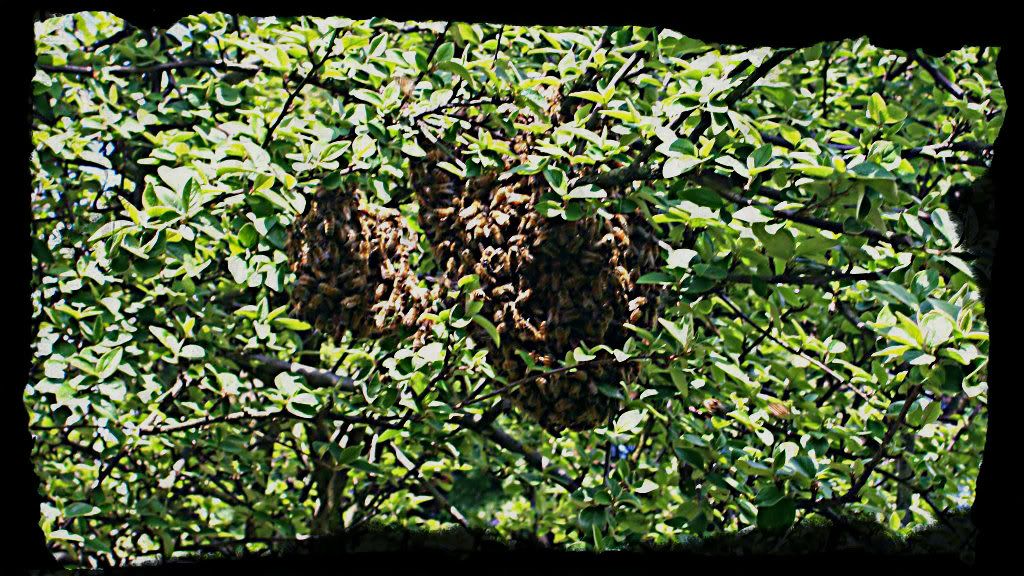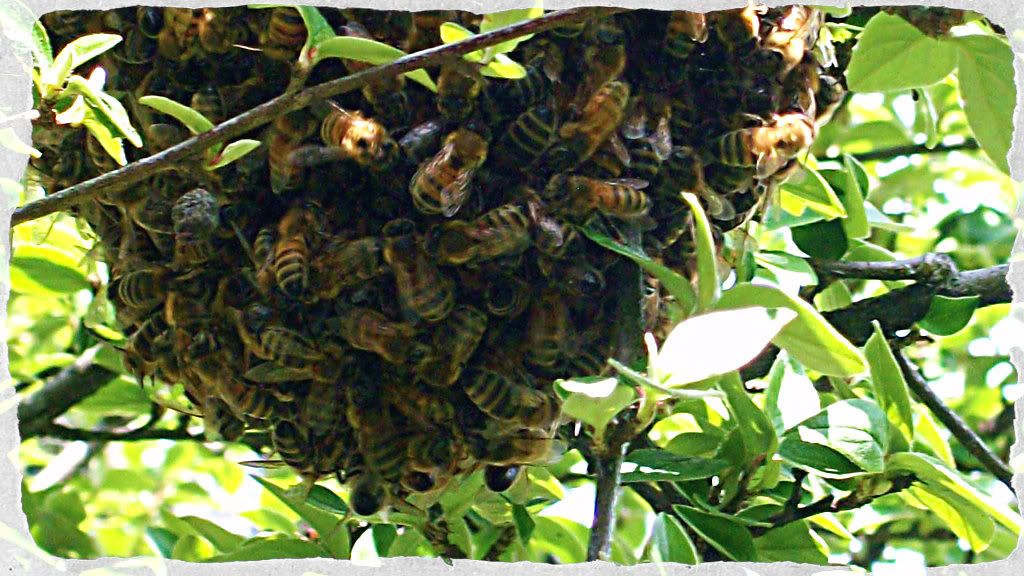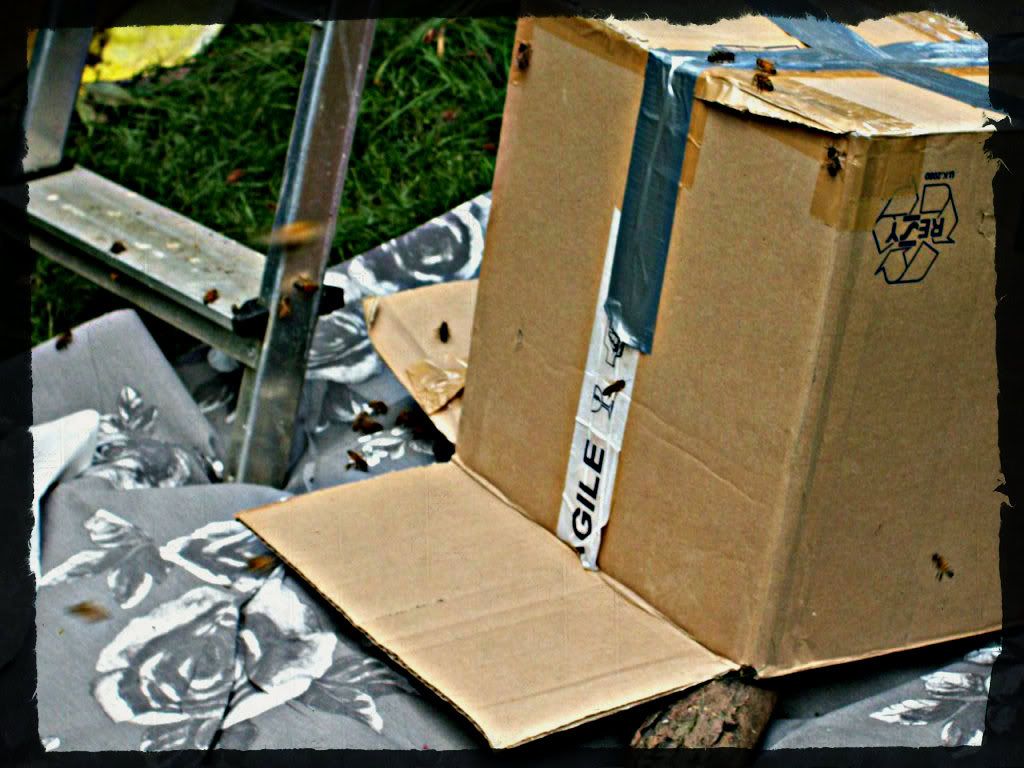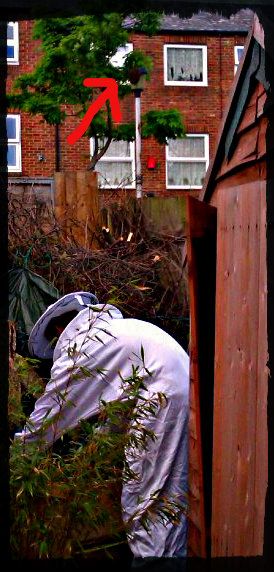This is excellent for us!
We send off our supers and await news. A couple of weeks later we receive our honey all 41 1/2lb jars of it. Along with some lovely pictures that I can share on here to show how our honey went from capped cells in frames to beautiful jars of honey.
Firstly the frames are taken out and using an uncapping brush the wax is taken off the top of the cells which are filled with the honey.
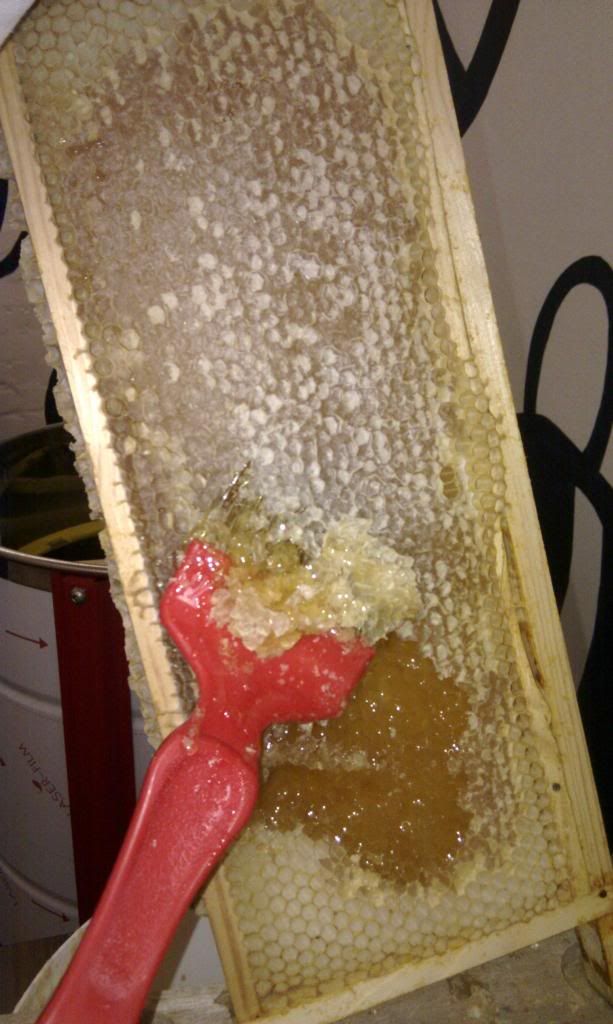 |
| Uncapping the honey |
The frames are then placed into this lovely contraption called an Extractor, it is basically a very large salad mixer.
 |
| The Extractor |
The frames are placed inside and it is then spun quickly. This way the honey is spun out of the extractor onto the sides, it finally settles at the bottom of the tank.
This can all be done by manually spinning however it needs to go fast and for a while which can hurt the arms, most extractors now have a motor which makes this process much quicker.
Once the honey has settled at the bottom of the tank, the valve is opened and the honey is poured into a bucket through a sieve to get out the bits of wax and the occasional bee body part.
Finally it is put in sterilised jars just like those found in the shops but much tastier and not processed within an inch of its life.
We also received an extraction report which means that we can sell the honey if we wish, knowing that it has all been processed hygienically and all the tests done correctly.
This year London honey is going for £7/lb although not sure we could part with it.
The Bee collective is a new enterprise which started this year. After going through the process we can definitely recommend it and can't see any reason (barr no honey) using them again next year.
